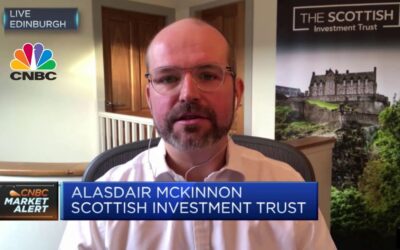13/11/20203 mins
Monthly Commentary – October 2020
Most of the world’s stockmarkets declined in October as rising coronavirus infections in Europe and the US reignited concerns about the economic recovery. The uncertainty around the US presidential election and the ongoing delays to a package of fiscal support further dampened investor sentiment.
Over the summer, falling rates of Covid-19 infection had led to hopes that the world was on the road to recovery. But with infection numbers escalating in the autumn, investors increasingly questioned whether the economy could continue to rebound from its steep slump.
Aside from President Trump’s brief Covid-related hospitalisation, US election campaigning continued in its usual belligerent manner. Despite the many differences between the opposing candidates, both are likely to favour greater fiscal stimulus. President Trump ordered stimulus negotiations to stop until after the election, before changing tack and calling for targeted action. The gulf between Republican and Democrat demands appeared to narrow, but despite bullish comments from both sides, an agreement remained elusive.
In Europe, several nations reacted to the accelerating spread of the virus by returning to the most restrictive measures since the spring. Boris Johnson announced a one-month lockdown for England while France and Germany announced similarly tough measures. These new shutdowns threaten the tentative economic recovery, raising the spectre of a double-dip recession.
Despite that, the month’s economic data was generally supportive. The US recorded a strong rebound in GDP, which rose at an annualised pace of 33.1%. China, meanwhile, reported encouraging data, including strong industrial profit growth.
Asia Pacific (ex Japan) was the only major region to record a gain in October, helped by a catch-up from China where stockmarkets reopened following the national Golden Week holiday. The worst returns came from Europe (ex UK) and the UK, where new lockdowns were imposed. As Brexit talks resumed in the UK, a stronger pound contributed to falling stock prices.
By sector, the best returns came from communication services and utilities as markets adopted a more defensive stance. As oil prices fell on the prospect of another round of lockdown-induced demand destruction, energy produced the weakest returns. Health care and information technology were also among the main laggards. Big Tech’s dominance remains in the spotlight, and Google’s parent Alphabet was the target of a US antitrust lawsuit during the month.
Our holding in KPN delivered solid returns over the month. This Dutch company is part of the unloved telecommunications industry, which has led many investors to overlook the opportunities open to it. The Netherlands’ mobile market has recently consolidated around fewer companies, which increases the pricing power of those that remain. Meanwhile, KPN’s new CEO is focusing on growing the company’s cash flow. With a potential bid reported in the press during the month, KPN’s attractions now appear to be catching the eye of private-equity investors. As many investors have fixated on growth, they have tended to overlook robust cash flows. We always value resilience in our portfolio and in KPN’s case, that resilience was rewarded in October.
Please remember that past performance may not be repeated and is not a guide for future performance. The value of shares and the income from them can go down as well as up as a result of market and currency fluctuations.
The Scottish Investment Trust PLC has a long-term policy of borrowing money to invest in equities in the expectation that this will improve returns for shareholders. However, should markets fall these borrowings would magnify any losses on these investments. This may mean you get back nothing at all.



